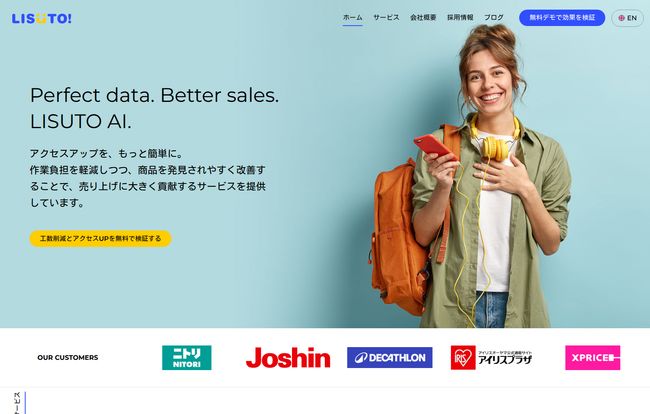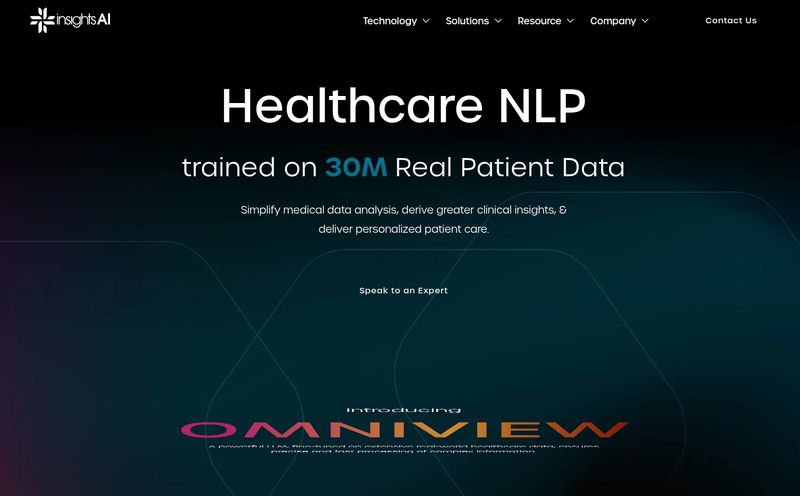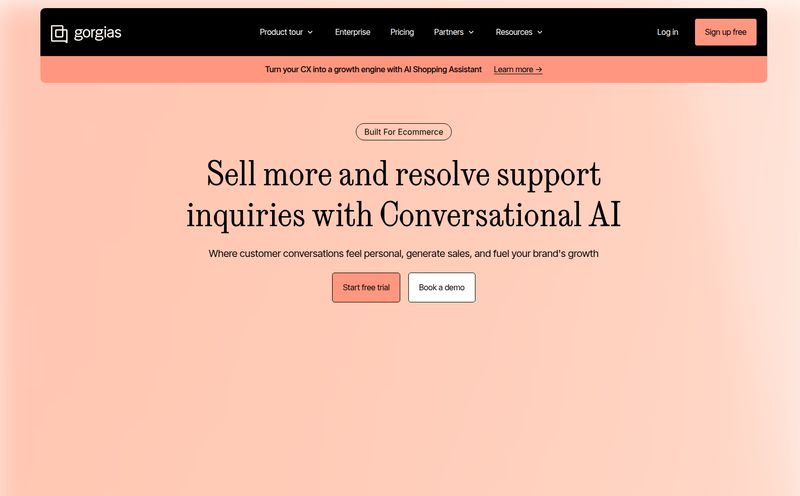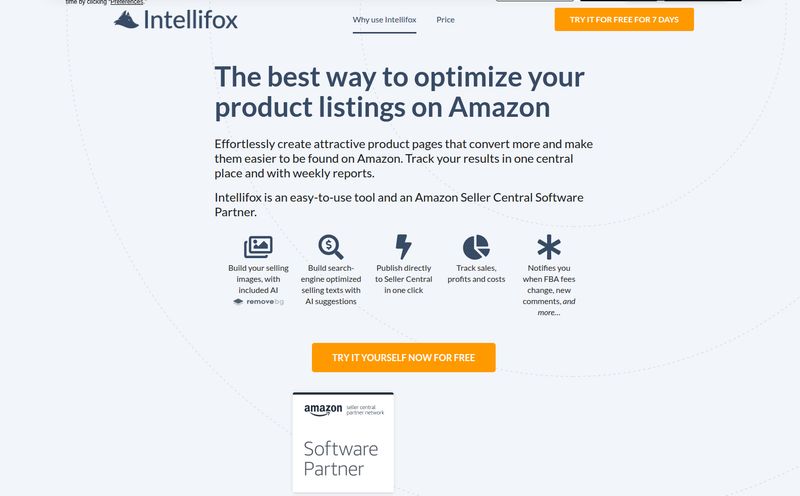Let’s talk about one of the least glamorous, but most critical, parts of running an e-commerce store: product data. Specifically, product tagging. Oh, the joy. If you’ve ever spent a week of your life manually adding attributes like “blue,” “cotton,” “v-neck,” and “summer collection” to 5,000 different t-shirts, you know the soul-crushing boredom I’m talking about. It’s a necessary evil. Your faceted search depends on it, your SEO lives and dies by it, and your customers will simply bounce if they can't find what they're looking for. Fast.
I’ve always said that on-site search is the unsung hero of conversion. A customer who searches is a customer with high intent. Mess that up, and you’re just leaving money on the table. For years, the solution was either brute force (hello, interns and late nights) or incredibly expensive, clunky PIM systems. But recently, a tool called LISUTO AI popped onto my radar, and it’s got me thinking. Maybe there’s a better way.
So What’s the Big Fuss About Product Data Anyway?
Before we jump into the tool itself, let's get on the same page. Why do we even obsess over this stuff? It’s simple, really. Good data structure is the foundation of a good shopping experience. Think of it like a library. Without the Dewey Decimal System, you’d just have a massive pile of books. Chaos. Useless.
In e-commerce, your product tags and attributes are your Dewey Decimal System. They power:
- Faceted Search: Those handy filters on the sidebar (“Brand,” “Color,” “Size,” “Price Range”). Without clean data, these filters are either broken or incomplete. According to the Baymard Institute, a poor filtering experience is a top reason for site abandonment.
- On-Site Search Results: When a user types “red floral dress,” your search engine needs structured data to pull up the most relevant products, not just anything with “red” in the description.
- SEO: Search engines love structured data. It helps them understand what your page is about, which can lead to better rankings and rich snippets.
- Personalization and Recommendations: “Customers who bought this also liked…” engines feed on this data to make smart suggestions.
The problem is, creating and maintaining this data is a monumental task. It’s tedious, prone to human error, and frankly, not where you want to be spending your time. You should be focusing on strategy, marketing, and growth.
Enter LISUTO AI: Your New Data Structuring Co-Pilot
Okay, so LISUTO AI. What is it? At its core, it's an AI-powered platform designed to automatically structure your product data. It’s not about replacing you; it’s about being the most efficient assistant you’ve ever had. It looks at your messy, unstructured product info—the stuff in your titles and long descriptions—and pulls out the gold.
The company seems to have its roots in Japan, and you can see from their client list—heavy hitters like Decathlon, Joshin, and partnerships with marketplaces like eBay—that they're not just a small startup with a neat idea. They’re playing in the big leagues. They seem to focus on two main weapons in their arsenal: the AI Tagger and the Image Tagger.

Visit LISUTO株式会社
The AI Tagger: Reading Between the Lines
This is the first piece of the puzzle. The AI Tagger scans your product titles and descriptions, the very text you or your supplier wrote, and intelligently extracts key attributes. You know, all the important details hiding in plain sight. It's like having someone who can instantly read a block of text like "Stylish V-Neck Summer Blouse in Royal Blue - 100% Organic Cotton" and automatically generate tags for Style: Blouse, Neckline: V-Neck, Season: Summer, Color: Blue, and Material: Cotton. Doing that across thousands of SKUs in seconds? That’s a game-changer.
The Image Tagger: A Picture's Worth a Thousand Tags
Now this, this is the feature that really got my attention. The Image Tagger does exactly what it sounds like: it analyzes your product photos to extract information. This is brilliant because so much crucial detail is often visual and not even mentioned in the description. It can identify attributes like:
- Color (even nuanced shades)
- Pattern (e.g., striped, polka dot, floral)
- Material (by visual texture, like denim or leather)
- Brand (from a logo in the image)
- Size
Think about it. How many times does a supplier send you data that's incomplete? The Image Tagger acts as a safety net, filling in the gaps that text-based analysis might miss. This dual approach of analyzing both text and images is what makes it so powerful.
How This Actually Helps You Make More Money
This all sounds technically impressive, but as an SEO and traffic guy, I care about results. Clicks, conversions, revenue. So how does LISUTO AI translate its features into actual business growth?
First off, product discoverability goes through the roof. With rich, accurate tags, your faceted navigation becomes genuinely useful. Customers can drill down to find exactly what they want, leading to a much better user experience and less frustration. Your on-site search becomes smarter, which directly impacts conversion rates for those high-intent shoppers.
Second, your sales and conversion rates can increase. It's a simple chain of events: Better data leads to better search and navigation, which leads to a better user experience, which leads to more people finding what they want and clicking “Add to Cart.” It’s not magic, it’s just removing friction from the buying process.
And of course, the time savings. The hours, days, even weeks you save on manual data entry can be reinvested into activities that actually grow your business. Marketing campaigns, customer service, strategic planning… you know, the fun stuff.
Let's Be Real: The Potential Hiccups
I’m naturally skeptical of any tool that promises to fully automate a complex process. So, let’s talk about the potential downsides. LISUTO AI is, at the end of the day, an AI. Its effectiveness is completely dependent on the accuracy of its algorithms.
Will it get a tag wrong sometimes? Probably. It might mistake navy for black, or misinterpret a complex pattern. This means you can't just set it and forget it entirely. A human review process, at least initially or for spot-checks, is likely a good idea to ensure tag quality remains high. The platform itself becomes a powerful tool for the human, not a full replacement. And thats okay. It's about efficiency, not abdication.
Who Is This For? And What’s the Deal with Pricing?
Given their client list, LISUTO AI seems geared towards established e-commerce sellers and large marketplaces—businesses with thousands of SKUs where manual tagging is a genuine operational bottleneck. If you're running a small Shopify store with 50 products, this is probably overkill. But if you're managing a catalog that makes your head spin, this is the kind of solution you should be looking at.
Now, for the million-dollar question: what does it cost? Well, there's no pricing page on their site. This is typical for enterprise-level B2B SaaS. It almost certainly means pricing is customized based on catalog size, usage volume, and the level of integration required. You’ll have to contact them for a demo and a quote. Don't expect a $49/month plan; this is a serious tool for a serious business problem.
Frequently Asked Questions About LISUTO AI
- What is LISUTO AI in simple terms?
- LISUTO AI is a tool that uses artificial intelligence to automatically read your product descriptions and look at your product images to create accurate tags and attributes. This saves a massive amount of manual work and helps customers find your products more easily.
- How does LISUTO AI improve my site's SEO?
- By creating highly detailed and structured data for each product, you're giving search engines like Google a clearer picture of what your pages are about. This can improve your chances of ranking for specific, long-tail keywords and can help you qualify for rich snippets in search results.
- Is the AI tagging 100% accurate?
- While the AI is very advanced, no AI is perfect. It's best to think of it as a tool that does 95% of the heavy lifting. A quick human review or spot-check is a good practice to ensure the highest level of accuracy, especially on complex or nuanced products.
- What kind of companies use LISUTO AI?
- Their website lists major retailers and brands like Decathlon and XPRICE, as well as integrations with large e-commerce marketplaces like eBay and Yahoo! Shopping. This suggests they are trusted by large-scale operations.
- How much does LISUTO AI cost?
- Pricing isn't publicly listed. This usually means it's a custom-quoted service based on your specific needs, like the number of products in your catalog and the features you require. You'll need to contact their sales team for a demo.
- Can it completely replace our manual tagging team?
- It can drastically reduce the manual workload, freeing up your team to focus on more strategic tasks. Instead of manually tagging everything, your team can shift to a role of reviewing and refining the AI's output, which is a much more efficient use of their time.
My Final Take
Look, the grind of managing product data isn't going away. But the way we handle it is definitely changing. Tools like LISUTO AI are at the forefront of that shift. I'm genuinely impressed by the dual-pronged approach of using both text and image analysis—it’s a smart solution to a messy, real-world problem.
Is it a magic bullet that will solve all your problems with one click? No. You still need a strategy. You still need to understand your customers. But as a powerful force multiplier that can save you hundreds of hours and directly improve your customer experience and sales, LISUTO AI is absolutely a tool worth investigating for any serious e-commerce player. It turns one of the most tedious jobs in retail into a strategic advantage. And that, in my book, is a huge win.



